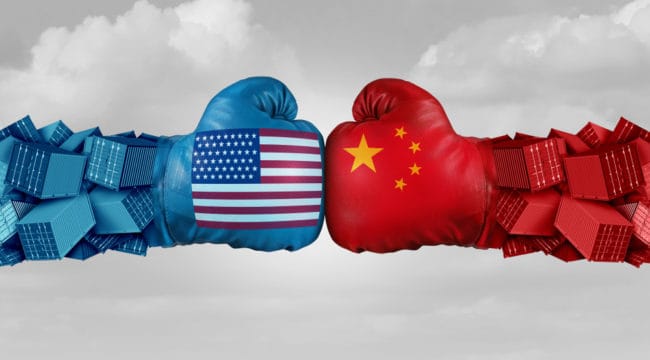
Trade tensions between the world’s two largest economies have ratcheted up significantly in the past weeks, putting pressure on both the U.S. and China to end the standoff. But which side will blink first?
The The U.S. has already imposed tariffs on $34 billion in Chinese imports, which were met with retaliatory charges by the Asian nation. After President Donald Trump instructed U.S. Trade Representative Robert Lighthizer to consider raising proposed tariffs on $200 billion in Chinese goods to 25 percent from 10 percent, the Chinese Ministry of Commerce responded with a retaliatory threat on Thursday.
Market moves suggest China — where the Shanghai index recently lurched into bear market territory, even as U.S. bellwether indexes have kept above water — may be the first to blink in the trade war. Yet strategists say there’s much more to it than that.
“That’s definitely true in the stock markets, because Chinese markets are heavily influenced by foreign capital flows and capital has been flowing out of China,” John Rutledge said CNBC’s “Closing Bell.”
He added: “But there are two other angles in China that matter: One is the economy and the third one is politics.”
When it comes to politics, Rutledge said, U.S. President Donald Trump could be the first to bend to pressure from his political base. From red state farmers to U.S. owned firms operating in China, “the pressure is here,” said Rutledge, who acts as chief investment officer of global principal investment house Safanad.
“A third of the value added of Chinese exports is from U.S. firms. That’s where the political pressure would come from here is from U.S. firms who don’t want it to screw up the sales they’re making in China to Chinese consumers,” he said.
Rutledge argued that Chinese President Xi Jinping doesn’t face that same sort of pressure.
“Xi doesn’t give a hoot about the poor people in China. Why do you think they attacked soybeans? Not just because of our farmers, but because he doesn’t care about the pressure from his own people,” he said.
Veronique de Rugy, a right-leaning columnist and fellow at the Mercatus Center Research, agreed.
“China is an authoritative government. I suspect the legislative pressure doesn’t exist there,” de Rugy told CNBC. “I think the optimism on the Trump administration’s side that…China will blink first is overrated.”
Mattie Dupler, a senior fellow at the National Taxpayers Union, agreed that the political tide seems stacked against Trump’s tariff threats. However, if tensions ease with other trade partners — like the European Union following Trump’s meeting with executive head Jean-Claude Juncker — Dupler said that could put more pressure on China.
“Having some sort of deal or at least lessening tensions with the EU increases pressure on our other trading partners that we are certainly negotiating with at the time, [and also] bolsters the spine of the Trump administration, thinking tariffs are the threat that can get the job done,” Dupler told CNBC.
The three major indexes closed higher for the week, despite China’s Friday threat that it will slap tariffs on $60 billion in U.S. goods, with charges ranging from 5 percent to 25 percent. Many of the goods are agricultural-related, with others on various metals and chemicals.